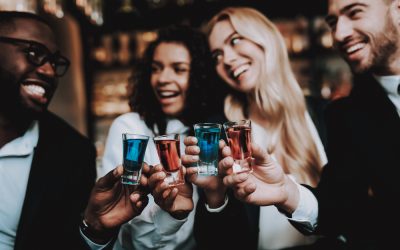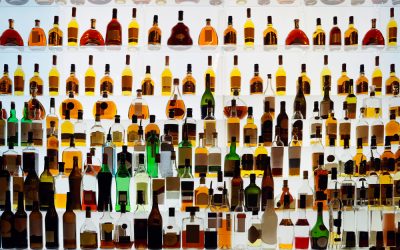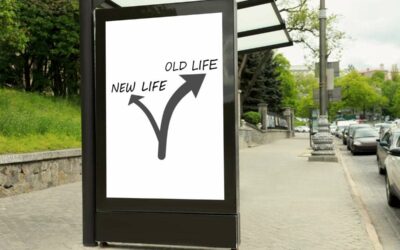Contents
Police from Fiji, Papua New Guinea, Samoa, Solomon Islands, Tonga and Timor-Leste learned how to use the Relief database which provides automatic analysis of the tool marks, logos and chemical compositions of drug packages.

Therapy sessions aim to change the way a person perceives drugs or alcohol and offer techniques to live healthy lives. Law enforcement officers battling substance use disorders have numerous resources at their disposal, and treatment is often the most effective option. Substance abuse couldn’t be avoided in San Diego, where multiple officers battled addictions to prescriptions drugs, alcohol and steroids.
Institutional Review Board Statement
Many officers find healthy ways to combat stress, such as running or lifting weights. More than 75 percent of officers in the study replied that attending a police funeral was especially upsetting, making it the most stressful work-related incident. Violent arrests, hostage situations and bloody crime scenes were also mentioned.
Can I test myself for drugs?
You can buy home tests for many illegal and prescription drugs. There are two types of tests: At-home tests let you do the entire test at home and get rapid results. But if the test result is positive for drugs, you'll need to have a follow-up lab test to check the accuracy of the result.
A conflict of interest can occur when a set of conditions in which professional judgment concerning a primary interest (e.g., the validity of the research) might be influenced by a secondary interest (e.g., financial gain). However, the declaration of a secondary interest does not necessarily imply the presence of a conflict of interest that prevents participation in the guideline development committee. Furthermore, some members with certain expertise, might share their own experience based on their own programs .
We create safer, healthier communities free of drugs, bullying and violence.
Based on the results, the authors concluded that DARE intervention is ineffective. The Law Enforcement Action Partnership is an international 501 nonprofit organization of criminal justice professionals advocating for drug policy and criminal justice reforms that will make communities safer. LEAP will not accept any contribution with conditions or restrictions that are inconsistent with or compromise our principles or that require us to advance an agenda that is not our own.
Therefore, the steering committee will play an important role in mediating this input to reflect the input most relevant and constructively building the guidelines. He graduated with a degree in journalism from East Carolina University and began his professional writing career in 2011. Matt covers the latest drug trends and shares inspirational stories of people who have overcome addiction. Certified by the Centers for Disease Control and Prevention in health literacy, Matt leverages his experience in addiction research to provide hope to those struggling with substance use disorders. Police officers consume alcohol at a rate double that of the general population, according to a report by The Journal of Law Enforcement. In addition, 15 percent of officers who attempted suicide had a history of alcohol abuse.
- Illicit drugs can have tremendous negative consequences, not only for the people who use the drugs but also for their families and communities.
- Before a police shooting makes headlines, before the shooting ever happens, there is the moment of contact between the police officer and the eventual victim.
- A guiding document based on the existing literature and experiences globally, as well as networking and bridging of such experiences would be key in reaching this objective.
For these young people, Operation DRUGS compounded the harms of racial profiling and misidentification. This was communicated through their acknowledgement that the police viewed them as “permanent suspects” and were preoccupied with “catching them out”. Participants in the qualitative study experienced these stop and frisks as a form of psychological violence. Relentless stop and frisks “for nothing” or for “no reason” (i.e., that did not result in arrest) were a primary source of concern for participants. Simple presence in these hotspots thus seemed to have precipitated “reasonable suspicion” for officers. The participants believed that the officers had usually correctly identified hotspots of drug activity; trouble arose, however, because these hotspots played many other roles in the lives of community residents.
Police and Substance Abuse
However, this approach has been used by other stakeholders in the field and was carefully developed to be robust and feasible for our study protocol, given the available resources prior to the meeting of the experts. Schools represent valuable social institutions that play an essential role in the safe and healthy development of youths, including the prevention of substance use powdered alcohol (e.g., tobacco, alcohol and marijuana) . On the other hand, exposure and use of substances such as smoking, drinking and illicit drugs, continues to threaten healthy school environments as well as the safe development of youth. Therefore, the development of a holistic evidence-based substance use prevention strategy is a crucial step towards the support of children in schools.
While steroids may help police officers build muscles and achieve a more intimidating appearance, these drugs compromise their health. Steroid use has been linked to high blood pressure, cardiovascular problems and aggressive behavior. They consume alcohol to relax, socialize or alleviate a physical pain or traumatizing memory. At a time of significant investment in the police, how fast can alcohol age you it is critically important to think about what good policing looks like. The accounts observed by this research and supported by other international studies show that intensive policing interventions can fail to achieve their goals. Instead, police crackdown operations are likely to exacerbate the structural inequalities that can influence criminality in the first place.
What happens if you get caught with drugs at the border?
Sentences for smuggling charges can range from 26 to 43 years, with sentences based on a points system depending on the item smuggled, criminal history, and if anyone was injured.
The “pretextual” or “investigatory” stop is a common police tactic to investigate potential criminal activity—particularly drug possession and trafficking—in situations where there is no legal reason to suspect a crime is occurring. There is not a large amount of data on how often these stops produce contraband seizures, but what data there is suggests that the overwhelming majority of people who are stopped are guilty of no crime. Much like the pedestrian stops during the heyday of New York City’s “Stop and Frisk” program, most of the motorists stopped for investigatory purposes are black or Hispanic. Those who are stopped are often pressured to give consent to a search the officer has no legal right to demand. Decriminalizing drug use, possession, and low-level drug sales is an essential step toward shifting to health-based strategies for addressing addiction and the harms of drug prohibition.
EU proposes new rules to fight trafficking in human beings
Initially stop and frisks were designed to be minimally invasive and brief. They differed from arrests because a reasonable person would know that he or she could walk away from a stop and frisk without harm. A key component of this stipulation was that stop and frisks did not involve police force, such as handcuffs or guns. In Terry v US, for example, Terry was grabbed and his outer garments patted down but the officer did not draw his weapon and did not handcuff Terry until he arrested him. Over time, however, a series of court cases have allowed stop and frisks to involve handcuffs, police weapons, and long detentions, thus blurring the lines between a stop and frisk and an arrest.

The development of these guidelines were made possible thanks to the generous support of the US-INL to UNODC global programming in the field of prevention of substance use. The donor had no role in the 30 days no alcohol what to expect, benefits & safety study design, data collection, data analysis, data interpretation or writing of the report or manuscript. Law enforcement can potentially play an important role in the field of school-based prevention.
This last type of contact is what led to the shooting death of Philando Castile in a Minneapolis-St. Ensure that the EU has effective tools to takeswifter action to banthe most dangerous of these substances from the EU drugs markets. To ensure an optimal implementation of the drugs strategy, the EU and its member states should involve civil society and allocate adequate resources. The COVID-19 crisis has aggravated the health vulnerabilities of drug users and has further confirmed the need to keep focusing on this policy area. Over the past two decades, the European Union and its member states have developed together a common approach to address the security and health implications of drug trafficking and drug use. Law enforcement action against drug trafficking is coordinated through the European Multidisciplinary Platform Against Criminal Threats .
Not only do police directly engage in student searches and seizures, but they often pressure school administrators and other professionals to pursue evidence of drugs. Due to the widespread adoption of zero-tolerance policies, drug use is now the second-highest source of student referrals to the police. Surveillance technologies not only threaten civil liberties but are used disproportionately against Black, indigenous, Latinx, and other people of color. Beyond invasions of privacy through surveillance, aggressive policing driven by the drug war has vastly eroded fundamental Fourth Amendment protections, such as the right to be free from unreasonable searches and seizures in your home or vehicle. The dangers of militarized police are particularly on display in the violent ways that law enforcement agencies wage the war on drugs by storming into homes unannounced and with great force. Forcible entries, particularly with “no-knock” warrants, have been shown to increase the number of individuals killed by police.
Do drug dealers use tinder?
While “swiping right” on modern dating apps like Tinder, Hinge, and Bumble can bring users one step closer to matching with a potential partner, online drug dealers in Florida are abusing this opportunity to sell drugs and line their pockets.
Addressing the illicit drugs phenomenon is a shared responsibility of all countries across the world. The Council has also agreed an action plan setting out 85 specific measures to achieve the priorities of the EU drugs strategy. The EU drugs strategy complements the national drugs policies of 27 EU member states. The illicit drugs market is one of the major sources of income for organised crime groups in the European Union, and represents an estimated yearly retail value of at least €30 billion. Drugs are a complex social and health phenomenon that affects millions of people in the EU. Illicit drugs can have tremendous negative consequences, not only for the people who use the drugs but also for their families and communities.
Oregon became the first state in the nation to decriminalize drug possession, significantly expanding access to substance use disorder treatment, harm reduction, and other health services. This has a substantial impact on the well-being of those living in hyper-policed neighborhoods. Even when an individual is detained and then released, or when drug arrests do not end in conviction, the effects are devastating and often impact employment, childcare, family finances and health. This contributes to higher rates of anxiety, poor health outcomes, distrust in government, and economic disparities. Learn more about this culture of criminalization at UprootingTheDrugWar.org. Petrosino et al. conducted a systematic review study in order to evaluate the effectiveness of non-educational policing strategies and programme in schools.
Such teams should be composed of mental health experts, including crisis-trained responders, and operated independent of police. Instead of pouring money into strategies that tear communities apart, we must better invest in community health and safety by redirecting resources toward community-based health and harm reduction services. The use of police in schools and other public places has also expanded the reach of police and the drug war.

Today, the trafficking of overseas-produced illicit fentanyl, heroin, and other opioids into the United States is fueling a national epidemic with fatal consequences. The CDC reports that U.S. drug overdose deaths surpassed 72,000 in 2017, representing a worrying increase from the already high 2016 number. Trafficking of illicit methamphetamine, produced outside U.S. borders, into our country is also increasing. The endless pursuit of drugs has been used to justify ever-increasing police budgets.











